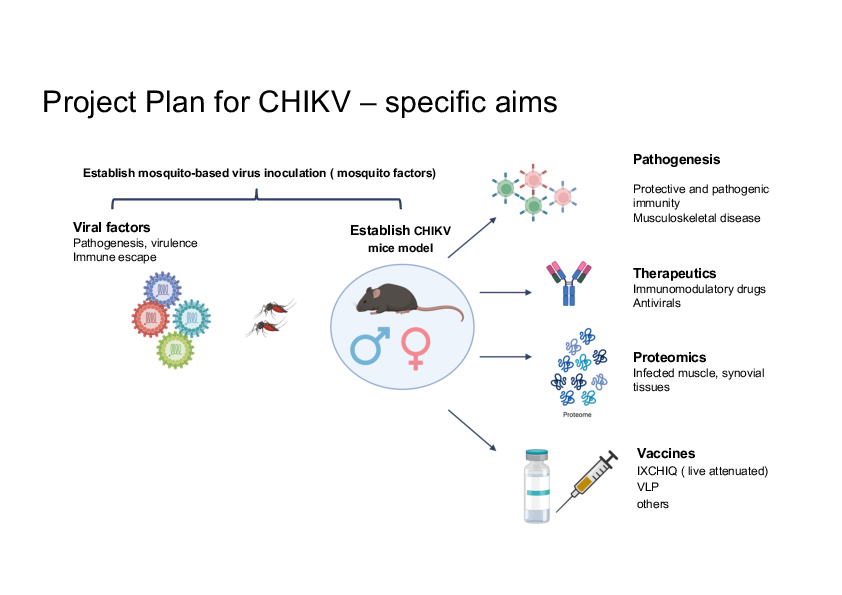As part of our new research, we are expanding the lab's focus to investigate T cell immunity in emerging infectious diseases, particularly arboviral infections such as chikungunya and dengue. This research builds upon Rosa's postdoctoral training at the La Jolla Institute for Immunology with Dr. Daniela Weiskopf, where she studied T cell responses to Chikungunya and dengue virus and their role in immunity and vaccine protection.
In light of climate change, which is expanding the geographical reach of diseases previously confined to the tropics, understanding how T cells contribute to immunity against these infections is more important than ever. Our new line of research aims to explore the immune protection that T cells provide in both primary and secondary infections, as well as focusing on the development of durable, protective immunity. By studying human cohorts in endemic region like sub-saharan Africa and South america, and using animal models under BSL-3 conditons, we seek to uncover the correlates of immune protection, and test vaccines and potential therapeutics.
A critical aspect of this research is understanding the complexities of co-infection in tropical regions. Many of the areas where chikungunya and dengue are endemic also face high burdens of protozoan diseases, such as malaria and Trypanosoma cruzi. These co-infections pose significant challenges in understanding how immune responses interact and how they shape disease outcomes. For example, in malaria-endemic regions of Africa, where dengue is also emerging, the immune response to one pathogen may influence the response to another, potentially altering the severity of both diseases. My research aims to unravel how T cells function in these populations and how this co-circulation affects immunity and disease progression.
Rosa was previoulsy funded by the SPARK Award to explore the interactions between malaria and dengue. This research emphasized how co-infections can influence immune responses, revealing that a significant proportion of children with acute malaria in West Africa had been exposed to dengue. These findings challenge the assumption that dengue has minimal impact in the region, highlighting the need for improved surveillance.











